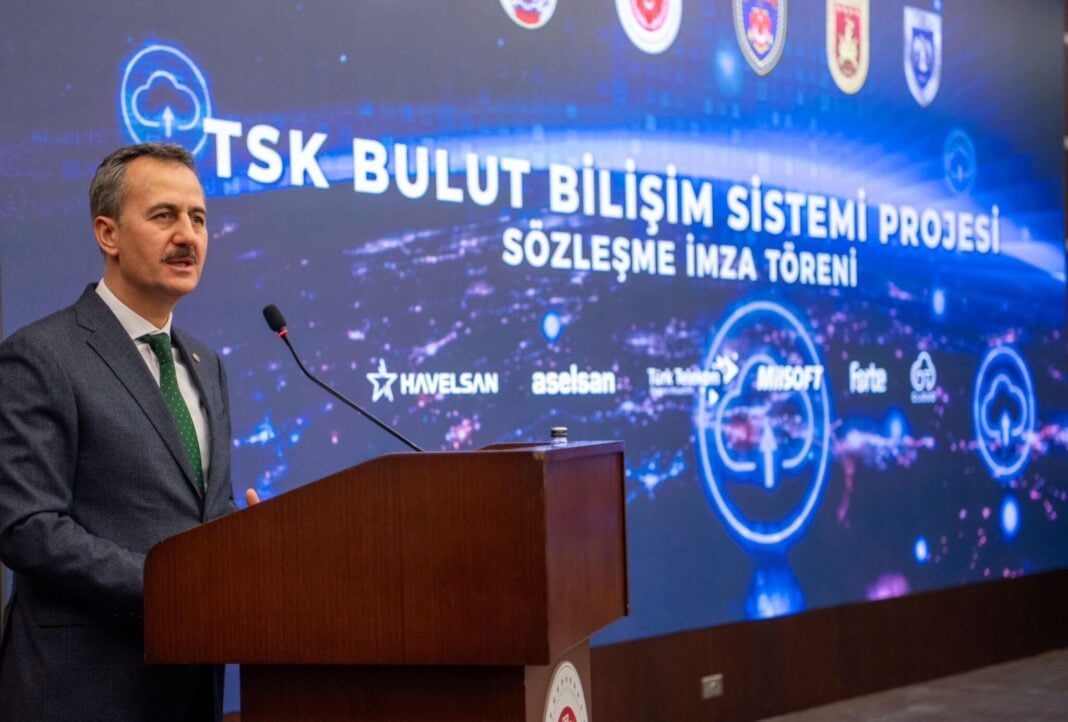The Turkish Ministry of Defense and the Presidency of the Defense Industry (SSB) signed a crucial cooperation protocol on Wednesday for the Turkish Armed Forces’ Cloud Computing System Project, a cornerstone of the country’s ambitious ‘Steel Dome’ air defense project, the state-run Anadolu news agency reported.
SSB President Haluk Görgün announced that the ministry and his organization have formalized their partnership to develop what he described as “one of the most critical infrastructures” in the development of Turkey’s homegrown air and missile defense system project, dubbed “Steel Dome.”
Steel Dome is a domestic initiative being developed by Turkey’s state-run defense contractors Aselsan and Roketsan and Turkish government research institute TÜBİTAK SAGE. It brings together existing and future sensors, communication networks and weapons under one system for comprehensive airspace protection.
The project’s goal is to establish a unified defense network capable of defending Turkey against emerging aerial threats such as drones and missiles.
The Cloud Computing System, to be spearheaded by Turkey’s leading defense contractor HAVELSAN, represents a strategic move in the country’s broader military digitalization efforts amid growing regional tensions and evolving warfare dynamics.
“This infrastructure is fundamental to our Steel Dome initiative,” Görgün said during the signing ceremony. “The project will ensure end-to-end cyber security coordination through our main contractor HAVELSAN, extending to every end user in the system.”
The development comes as part of Turkey’s 2024-2028 Strategic Defense Plan, which emphasizes technological sovereignty and enhanced military capabilities.
Chief of General Staff Metin Gürak highlighted the pressing need for such advancements, citing mounting regional threats and global uncertainties.
“Modern warfare demands flexible, advanced command and control structures capable of rapid threat response,” Gürak said. “The transformation in communication, information and weapons systems is fundamentally altering not only our technological infrastructure but also our operational concepts.”
Military cloud computing has emerged as a cornerstone of modern defense strategy, transforming how armed forces operate, communicate and respond to threats. The technology offers unprecedented capabilities in operational efficiency, cost reduction and security enhancement while revolutionizing military data management and communications systems.
The cloud computing project aims to provide the Turkish Armed Forces with advanced server capabilities, storage systems and network infrastructure. Military analysts say this digital transformation could significantly enhance Turkey’s defense capabilities, particularly in real-time operation monitoring and management, AI-supported decision-making processes, securing data storage and processing and enhanced military training and simulation as well as improved logistics and inventory management.
As Turkey advances its military cloud computing project, similar initiatives worldwide underscore the growing significance of cloud technology in modern military operations.
The US Department of Defense’s Joint Warfighter Cloud Capability (JWCC) stands as a leading example of this global trend. The Pentagon-led initiative aims to create an integrated cloud infrastructure connecting various military branches, enhancing battlefield coordination and cybersecurity capabilities.
The JWCC contract, worth up to $9 billion over three to five years, was awarded to Amazon, Google, Microsoft, and Oracle in December 2022.
Leonardo, an Italian state-owned defense contractor, has been commissioned by Italy’s Ministry of Defense to explore the creation of Europe’s first military space cloud project, called MILSCA.
The project aims to provide high-performance computing, cloud, AI and storage capabilities directly in space.
However, experts note that while cloud computing offers substantial military advantages, it also presents challenges, including cybersecurity risks and potential internet dependency issues.
